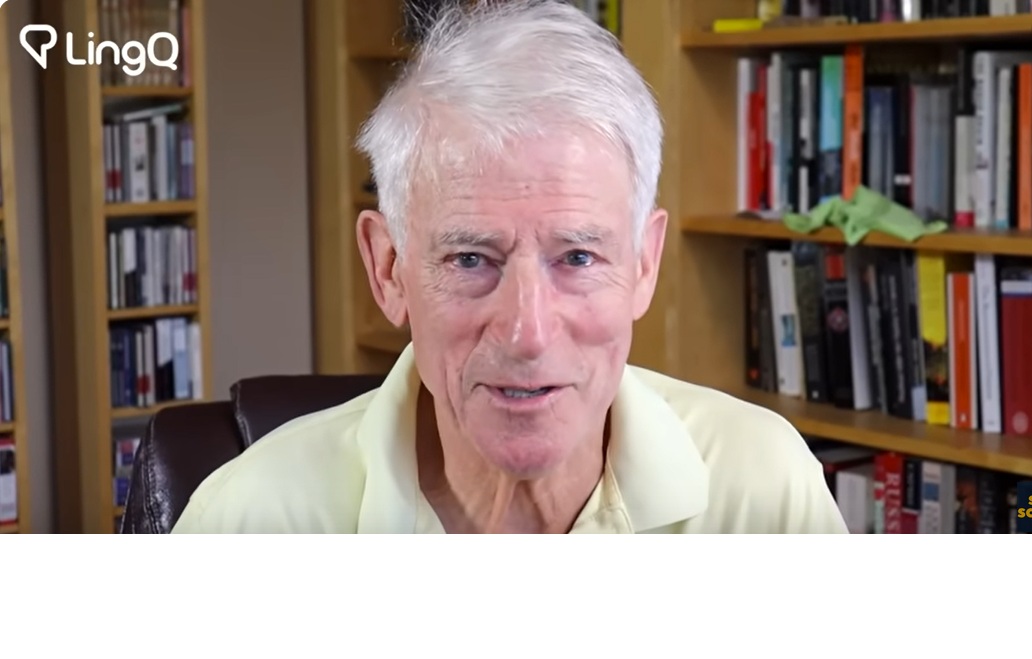
In the world of polyglots, Steve Kaufmann stands out as a passionate, lifelong learner. A former Canadian diplomat turned co-founder of the language platform LingQ, Steve is living proof that language learning doesn’t end with school—or even with retirement. He’s learned over 20 languages, many of them after the age of 60. His relaxed, input-heavy method has deeply shaped the way I approach language learning today.
At the heart of Steve’s method is a simple idea: you acquire language by exposing yourself to it—repeatedly, and with enjoyment.
He believes that reading and listening are the primary drivers of language acquisition, especially in the early stages. That idea really resonated with me. Rather than obsessing over grammar rules or vocabulary lists, I shifted toward immersing myself in content I enjoy—books, podcasts, YouTube videos, and articles. And just like Steve says, when you understand enough to enjoy the content, learning becomes not only more effective, but sustainable.
Steve often talks about the importance of “comprehensible input”—language content that’s slightly above your current level but still understandable. This kind of input stretches your ability just enough without overwhelming you. He encourages learners to embrace uncertainty: you don’t need to understand every word to grow.
This was a game-changer for me. I stopped pausing every five seconds to look up words, and instead let my brain absorb the language more naturally through context and repetition.
Unlike methods that push speaking from Day 1, Steve believes in building a solid foundation of passive skills first. He’s not against speaking—far from it—but he argues that the more you understand before you speak, the more meaningful and less frustrating the speaking experience will be.
This approach helped me feel less pressure to “perform” early on. I could focus on enjoying the language and let speech emerge more organically.
Steve developed LingQ, a platform that lets you read and listen to content while saving and reviewing unknown words in context. It’s a digital version of his input method—perfectly adapted to the modern learner.
Through LingQ, I was able to track words I didn’t know, revisit them, and build up my vocabulary in a way that felt natural and low-stress. It wasn’t about cramming—it was about exposure and curiosity.
One of Steve’s most inspiring messages is that you’re never too old to learn a language. He began learning languages seriously again in his 60s and continues to take on new ones today in his 70s. His energy, curiosity, and humility are infectious.
As someone who sometimes wondered if I had missed the “ideal window” to learn languages well, Steve’s story gave me confidence. It reminded me that learning is a lifelong process—and that motivation and consistency matter more than age.
Steve Kaufmann’s method isn’t flashy. It’s not about hacks or shortcuts. It’s about creating an immersive environment of reading, listening, and curiosity. It’s about trusting the brain’s natural ability to acquire language—if we give it enough input, and enough time.
Following his advice, I now treat language not as a subject to study, but as a world to explore. And that’s made all the difference.
If you haven’t yet watched Steve’s videos or tried LingQ, I highly recommend doing so. You might just discover a more enjoyable, intuitive way to learn—no matter how many languages you’ve studied before.